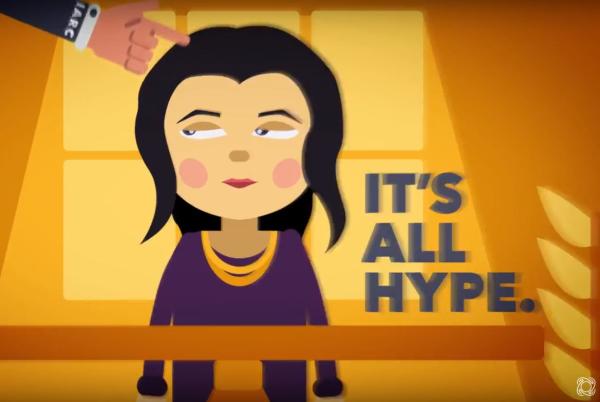1. Dr. Alex Berezow set off a Seattle firestorm last week when he announced that misguided policies, which had led to a surge in homelessness (and therefore drugs and crime) had caused him to buy a house outside the city. In the Seattle Times, Alex notes his ongoing concern, and that when he asked the City Council member he voted for to provide insight on how they will address the problem, she compared him to Hitler. Not easy to take for a guy whose grandparents were fortunate enough to survive Germany under the Nazis.
Seattle used to pride itself being an equally nice but more practical version of Seattle. Now it is a very angry place, he notes.
2. In Ag Week, they covered the manufactured trial lawyer efforts to sue and settle over glyphosate in California. Since is it hard to keep track of California's anti-science beliefs, that is different than the manufactured trial lawyer efforts to sue and settle over coffee, though both involve a duo of friends who wormed their way into IARC while working for Environmental Defense Fund, and both are linked to Dr. Linda Birnbaum, the chief chemophobe who still dismisses toxicology, biology and chemistry at National Institute of Environmental Health Sciences in favor of creating statistical links and advocating for bans.
Dr. Josh Bloom is quoted, "There's no such thing as an evil chemical. There are chemicals that are useful, not so useful, both. It's all a matter of toxicity and dose. That's what determines the harm of any chemical. You can't even find anything safer in terms of a lethal, acute dose" than glyphosate, in terms of herbicides."
The article was also carried in Capital Journal.
4. In The Runner, they discuss Erik Lief's work on how the first statistician in a baseball uniform is going to reshape strategy. Baseball has always been the most scientific sport, it is heavily numerically driven and everything is well quantified (except errors - don't get me started on that) and this is further evolution of its pro-science techniques.
5. If you haven't seen the new introductory video we created for my talk at the Council on National Policy meeting in two weeks, take a 40 second look here.
6. What Would Paul Do? In USA Today, Dr. Alex Berezow and former Preaching Pastor-in-Residence at National Presbyterian Church in Washington, D.C., Rev. Earl F. Palmer, invoke the incredible global strategy of St. Paul and how we would solve the runaway partisanship issue in Washington, D.C. The take home message: Fine, you didn't vote for the president. Creating a cult of personality built on being against him is not governance. Magnifying every falsehood and diminishing every truth is not helping anyone. We face that in science every day, we know how corrosive it is. That is activism, not education.
7. In Spiked, they invoke our work to discuss the ramifications of a ban on snus, a Swedish tobacco product. Under the previous administration's FDA, abstinence-only was the preferred recommendation. Such quit-or-die thinking led to them refusing to categorize snus as a ‘modified risk tobacco product’ and to lump it in with cigarettes despite the fact that Sweden has a fraction of the harmful outcomes Europe has due to the popularity of snus and the resulting lower smoking rates. Like caffeine, nicotine in moderate amounts is not harmful, but claims about mouth cancer are exaggerated. Smoking kills, everything else is going to be better.
8. In World Net Daily, legendary martial artist and actor Chuck Norris discusses his wife's gadolinium poisoning and Dr. Chuck Dinerstein's article on the contrast dye used in MRIs. Chuck's work was also featured in Multiple Sclerosis News Today.
9. Alex Berezow's concern about Seattle had him covered in numerous radio programs and outlets last week. Here are a few:




